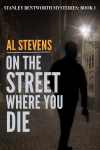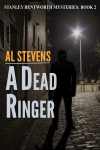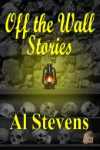Ventriloquism in Literature
When popular literature focuses on a subject not generally understood, people form opinions about the subject based on the literature rather than personal experience. Most of us think we understand the work and lives of policeman and doctors, for example, because we've seen them depicted so often on television. It follows that people form opinions about ventriloquism and ventriloquists based substantially on how the art is treated in literature; that's the only way most people can learn about the art form and its practitioners.
You don't need to know about ventriloquism in literature in order to be a ventriloquist, but you might want to know how you will be portrayed by the entertainment media and, consequently, how you will be regarded by the public simply because you are a ventriloquist. You might just decide to become a plumber instead.
Why would moviegoers, book-readers, and TV-watchers want to know about ventriloquists? Why do literature and media occasionally focus on us? Perhaps it's because people enjoy reading and viewing stories about entertainers and the entertainment industry. It gives them a glimpse into a glamorous and fascinating world that is otherwise closed to them. Inquiring minds want to know about the lives of rock stars and matinee idols because of the glitter associated with fame. But what is glamorous or interesting about the life of a guy who tells jokes with a dummy on his knee? Not much. Consequently, purveyors of fiction have to spice it up.
There is one significant difference, then, between the portrayals of ventriloquists and other entertainers in fiction. Whereas stories about other performers concentrate on the human aspects of their lives and careers, stories about ventriloquists tend to be contrived accounts of demented ventriloquists, evil dummies, ventriloquists who cannot communicate with people except through their dummies, or some combination of the three.
When books, movies and TV dramatic shows consistently portray ventriloquists that way, it belittles the profession; people come to believe the phony stereotypes. As far as I can tell, there has never been an actual case of a ventriloquist who committed crimes or displayed aberrant behaviors because he believed his dummy was alive and told him to do misdeeds. I know many ventriloquists but never met one who believes his dummy is alive; I never met a ventriloquist so shy he does all his talking through his dummy. Yet those themes find their way into the plots of countless books, movies, and TV shows.
Sometimes dramatic and comedy fictional shows use real ventriloquists in such roles and other times they use actors who pretend to be ventriloquists, which is about as convincing as a non-musician pretending to play an instrument, which also happens a lot on TV and in the movies.
There are, of course, anecdotal incidences of ventriloquists who are not quite all there. Herbert Dexter's wife was awarded a divorce based on her contention that Dexter loved his dummy Charlie more than he loved her and that he used Charlie to taunt her. She named the dummy as co-respondent and testified about her homicidal feelings for it. The judge granted her the divorce.
When British ventriloquist Arthur Prince died in 1948, he was buried with his dummy in accordance with his final wishes.
Paul Winchell built a dummy to represent his dead mother. He kept the dummy away from his friends and family, talked to it as if it was real, and eventually shot it with a pistol. He left a mental institution one night and visited his mother's grave where he hallucinated about Jerry and Knuck in rowboats screaming at him to say the magic phrase that would release his demons. The phrase was “Scaddy Waddy Doo Doo,” the password that Jerry used in Winchell's shows.
Winchell's problems, Dexter's divorce and Prince's coffin-mate do not, however, automatically brand all ventriloquists as unbalanced and neurotic. You'll find a similar ratio of unbalanced people and peculiar behavior in all professions.
Future articles will discuss ventriloquism as it is portrayed in books, movies and on television.
You don't need to know about ventriloquism in literature in order to be a ventriloquist, but you might want to know how you will be portrayed by the entertainment media and, consequently, how you will be regarded by the public simply because you are a ventriloquist. You might just decide to become a plumber instead.
Why would moviegoers, book-readers, and TV-watchers want to know about ventriloquists? Why do literature and media occasionally focus on us? Perhaps it's because people enjoy reading and viewing stories about entertainers and the entertainment industry. It gives them a glimpse into a glamorous and fascinating world that is otherwise closed to them. Inquiring minds want to know about the lives of rock stars and matinee idols because of the glitter associated with fame. But what is glamorous or interesting about the life of a guy who tells jokes with a dummy on his knee? Not much. Consequently, purveyors of fiction have to spice it up.
There is one significant difference, then, between the portrayals of ventriloquists and other entertainers in fiction. Whereas stories about other performers concentrate on the human aspects of their lives and careers, stories about ventriloquists tend to be contrived accounts of demented ventriloquists, evil dummies, ventriloquists who cannot communicate with people except through their dummies, or some combination of the three.
When books, movies and TV dramatic shows consistently portray ventriloquists that way, it belittles the profession; people come to believe the phony stereotypes. As far as I can tell, there has never been an actual case of a ventriloquist who committed crimes or displayed aberrant behaviors because he believed his dummy was alive and told him to do misdeeds. I know many ventriloquists but never met one who believes his dummy is alive; I never met a ventriloquist so shy he does all his talking through his dummy. Yet those themes find their way into the plots of countless books, movies, and TV shows.
Sometimes dramatic and comedy fictional shows use real ventriloquists in such roles and other times they use actors who pretend to be ventriloquists, which is about as convincing as a non-musician pretending to play an instrument, which also happens a lot on TV and in the movies.
There are, of course, anecdotal incidences of ventriloquists who are not quite all there. Herbert Dexter's wife was awarded a divorce based on her contention that Dexter loved his dummy Charlie more than he loved her and that he used Charlie to taunt her. She named the dummy as co-respondent and testified about her homicidal feelings for it. The judge granted her the divorce.
When British ventriloquist Arthur Prince died in 1948, he was buried with his dummy in accordance with his final wishes.
Paul Winchell built a dummy to represent his dead mother. He kept the dummy away from his friends and family, talked to it as if it was real, and eventually shot it with a pistol. He left a mental institution one night and visited his mother's grave where he hallucinated about Jerry and Knuck in rowboats screaming at him to say the magic phrase that would release his demons. The phrase was “Scaddy Waddy Doo Doo,” the password that Jerry used in Winchell's shows.
Winchell's problems, Dexter's divorce and Prince's coffin-mate do not, however, automatically brand all ventriloquists as unbalanced and neurotic. You'll find a similar ratio of unbalanced people and peculiar behavior in all professions.
Future articles will discuss ventriloquism as it is portrayed in books, movies and on television.










0 Comments:
Post a Comment
Subscribe to Post Comments [Atom]
<< Home